Cranberries are not just for Thanksgiving! This nutrient rich superfruit can be enjoyed year round as a refreshing drink, and with some evidence suggesting that cranberries may help prevent against urinary tract infections or UTIs – something which many of us can suffer during our lifetime – there is even more reason to make the most of this native fruit!
Cranberry juice is not without controversy though. Although there is some evidence supporting the possibility that cranberries may help protect against UTIs; it seems that these claims made by the cranberry industry are not strong enough to be recognized by the FDA. In this article we give you the lowdown on the great cranberry and UTI debate as well as considering some of the other potential benefits which cranberry juice may offer to our health and wellbeing. We also review some of the current bestselling juices to help to find the best cranberry juice for your tastes.Quick Comparison: Top 8 Best Cranberry Juice
1. Lakewood Organic Pure Cranberry Juice
The six pack of 32 fl. oz Lakewood Organic pure cranberry juice is 100% cranberry juice; with no additives or sugars added. This juice comes in glass bottles to keep it fresh and as well as being certified USDA organic, this juice is certified kosher. This juice keeps for up to six weeks in the refrigerator after opening, although it will be at its best if used within two weeks of opening.
As these are glass bottles, there can be a risk of damage to them during shipping and some drinkers consider this is a stronger juice with a bitter flavor, so you will probably need to dilute with water or add sweetener before drinking. As an organic juice this will also cost more than other cranberry juices.
Pros
Cons
2. Tropicana Cranberry Cocktail Juice
The Tropicana cranberry cocktail juice beverage comes as a 24 case of 10 fl. oz plastic bottles which are ideal for using in cocktails or just drinking on the move. This is a sweetened cranberry juice containing around 20% cranberry juice although some drinkers consider that this quantity is not enough to bring out the flavor of cranberry in the drink. This also contains grape juice, high fructose corn syrup (HFCS) and has had vitamin C added to it.
Pros
Cons
3. Dynamic Health Pure Cranberry
The unsweetened and 100% juice concentrate Dynamic Health pure cranberry needs diluting at one part juice with five parts water, juice or seltzer. The seal on this 8 fl. oz plastic bottle can be prone to leaking and although a concentrate; this will need refrigerating after opening. This juice is also certified kosher.
Pros
Cons
4. Life Tree Cranberry Juice Concentrate
The 16 fl. oz bottle of Life Tree cranberry juice concentrate contains 100% pure juice and is free from any additives. One part of this concentrate can be mixed with five parts water or juice and then sweetened to taste, although some drinkers consider this is still quite strong when diluted so may require further dilution.
This juice needs refrigerating when opened, and like any glass bottle there can be a risk of damage to the bottle during shipping. This can also be more expensive than other concentrated cranberry juices.Pros
Cons
5. Ocean Spray Unsweetened Pure Cranberry Juice
The eight pack of 33.8 fl. oz Ocean Spray unsweetened pure cranberry juice contains 100% cranberry juice and is free from any additives. Some recent buyers consider this is a particularly bitter juice and it will require some sweetening or mixing with a sweeter juice before drinking. This is also non-GMO and each serving contains 60 calories.
Pros
Cons
6. R.W. Knudsen Organic Just Cranberry
Made with 100% pure cranberry juice, the R.W. Knudsen organic just cranberry is certified USDA organic and Non-GMO Project Verified. This comes as 32 fl. oz glass bottle. Some consider that this juice is now less concentrated than it used to be and as a stronger and bitter juice this will usually need diluting or sweetening before drinking.
Pros
Cons
7. Country Spoon Cranberry Juice Concentrate
The 34 fl. oz bottle of Country Spoon cranberry juice concentrate is made with pure cranberries and does not contain any other ingredients. This is a non-GMO juice, although not currently organic. Some have found that this gluten free juice is more concentrated than other concentrated juices, so will need more diluting and possibly sweeteners adding. The manufacturer advises that two tablespoons of juice be diluted in 5 fl. oz of water.
Pros
Cons
8. Ocean Spray Sparkling Cranberry Juice
Coming as a 24 pack of 8.4 fl. oz cans, the Ocean Spray sparkling cranberry is a blend of sparkling water, cranberry juice and grape juice along with natural flavors and vitamin C. It also contains carrot extract for color. This sparkling cranberry can be drank alone or used as mixers in other drinks.
Although free from HFCS, this does contain sugar and one can of this sparkling juice will provide 24 grams of sugar or 8% of the % Daily Value. The odd buyer has found the tabs on these cans to be less robust than they should be.Pros
Cons
Things to Consider Before Buying Cranberry Juice
One of only three fruits native to North America, nutrient-rich cranberries are farmed on around 40,000 acres of marshy land across colder climates in the northern US and Canada. Wisconsin has been the main producer of cranberries for over two decades and produces over 50% of the global supply of cranberries. Around 70% of all cranberries sold come from Ocean Spray, a grower’s co-op which was formed in the 1930s.
Cranberries are a type of evergreen shrub with small pink flowers and dark red fruits and as the fruits ripen and fall off into the water-filled marshes and bogs, they float on the water because they have a little pocket of air inside of them. This allows them to be wet harvested.
Cranberries were originally used alongside dried meats and fat by Native Americans to make a high protein and high energy food called pemmican which could be used during winter and when they travelling to trade. Cranberry juice itself actually dates back to 1683, first made by American settlers.
The name cranberry came from Dutch and German settlers who named it ‘crane-berry’ as the flowers look like the head of a crane bird. Although cranberries give the most benefits when eaten whole and raw, their bitter and sharp taste means most of us prefer to consume cranberries in the form of a diluted juice drink or eat them cooked alongside the Thanksgiving turkey!
Cranberries contain many beneficial molecules and compounds, including antioxidants which are able to fight damage to the body cause by chemicals called free radicals. Free radicals contribute to aging and cause oxidative damage in the body. Oxidative damage is associated with numerous conditions such as diabetes and heart disease and is also linked to cancer. Research suggests that cranberry could have a role in preventing cancer through diet changes.
One study showed that cranberries promoted more effective antioxidant action when the pH of the cranberries was lowest and although the berries themselves were the most potent antioxidants, cranberry juice did still have some antioxidant benefits.
Cranberries are also rick in salicylic acid – the same active ingredient found in aspirin. Regularly consuming cranberry juice increase the salicylic acid in the body which can help prevent blood clots, reduce swelling and even have some anti-tumor effects.
When choosing a cranberry juice be aware of the difference between real, 100% or pure cranberry juice not from concentrates which do not contain any sugars or additives, and the cranberry juice cocktails or drinks which often contain sugars such as high fructose corn syrup. If the cranberry juice you are considering buying is a cranberry blend, look to see if it is sweetened with natural sweeteners such as grape or apple juices rather than artificial sweeteners or sugars.
A pure cranberry juice can be diluted with water, or with a sweeter juice such as grape or orange to sweeten it.
Cranberry Juice, UTIs and Industry Controversy
Although cranberry juice has been associated with support for urinary tract infections (UTIs) for some time, it seems that cranberries may not yet be the magic cure for UTIs as thought by many of us. According to the American Urological Association, around half of all US women contract a UTI at some point in their life.
One study in 2016 showed less bacterial infections in urine cultures from boys who had repeated UTIs and were uncircumcised compared to two other groups of boys – one group who were uncircumcised and drank a placebo and the second group who also drank a placebo but were circumcised. The researchers concluded that cranberry juice may be beneficial against bacterial pathogen growth. A later 2017 study in mice showed that cranberry juice reduced the rates of UTIs.
At one time it was thought that cranberry was able to make urine acidic which would stop bacteria from growing in the urinary tract, but it now appears that the proanthocyanidins in the cranberries actually stop bacteria such as E. coli from attaching to the lining of the urinary tract.
This then prevents the bacteria from growing and spreading so it cannot cause infection. These proanthocyanidins do not seem to be able to remove the bacteria which has already stuck to the cells though, which means although there is some evidence for cranberry helping prevent UTIs in certain groups of people, it is probably ineffective as a treatment for them.
However there have also been a number of studies which have shown that cranberry juice lacks effectiveness as a treatment for UTIs, so more research is needed before a conclusion can be drawn either way as to whether cranberry juice is effective against UTIs. A 2012 review of the literature at that time concluded that cranberry juice could not currently be recommended to prevent UTIs.
Earlier studies in the laboratory did show that cranberries were able to inhibit some viruses, including norovirus (common cause of foodborne illness) and in another study it was able to inhibit growth of seven types of bacteria. Some research has also shown that drinking cranberry juice can reduce urine odor in those who are unable to control urination properly.
The Washington Post reported that our cranberry growers are currently producing more cranberries than we are consuming and a major cranberry juice producer has invested heavily in research into cranberry juice and UTIs is standing against experts who dispute the producer’s claim that women get fewer UTIs when they drink cranberry juice.
In 2017, the producer (Ocean Spray) requested for permission to detail on their packaging that cranberry juice could help reduce UTI risk. Many experts disagreed with Ocean Spray’s findings and claims; one reason being that Ocean Spray looked at preventative benefits of cranberries in people who have common UTI symptoms such as frequent or painful urination while much of the independent research has focused on groups of people with these symptoms and confirmed bacterial infections. UTI symptoms such as frequent urination can also be caused by other conditions, including nervousness.
There are other consistencies in cranberry and UTI research across the board. Some research showed that cranberry extract was able to prevent UTIs as well as the antibiotic drug trimethoprim, but other research contradicted this, finding that the antibiotics were more effective at preventing UTIs than cranberry.
There are also difficulties in ascertaining whether drinking cranberry juice or taking cranberry extracts are more effective and what the most effective dose of these actually is.
The FDA also appeared to disagree with the industry findings as it declined the request for an ‘authorized health claim’ however it said it would consider a ‘qualified health claim’ which required meeting a lower standard. This would allow Ocean Spray to mention the link circumspectly while noting that the evidence is inconclusive. The company has proceeded with the authorized health claim and it is hoped that this will help to improve current sales of cranberry juices.
Cranberry Juice Side Effects
Cranberry juice is likely to be safe for most people when consumed appropriately. Too much juice can cause side effects such as mild digestive discomfort or diarrhea. Drinking over 33.8 fl. oz of cranberry juice per day could potentially increase the risk of kidney stones.
There is a lack of reliable information about cranberry safety if pregnant or breast-feeding, so it may be sensible to avoid drinking cranberry at this time.
If you are allergic to aspirin, you should avoid consuming large amounts of cranberry juice as it contains salicylic acid. For those with atrophic gastritis, or inflammation of the stomach lining, cranberry juice could actually increase absorption of vitamin B12 which means you should discuss with your medical practitioner before drinking cranberry juice – especially if taking B12 supplementation. Similarly, more B12 may be absorbed in those who drink cranberry juice and have lower levels of stomach acid (hypochlorhydria).
Although research is limited into the interactions between cranberry and drugs, some preliminary evidence suggests that cranberry could interact with drugs changed by the liver such as diazepam, glipizide, ibuprofen, tamoxifen and others as well as the anti-inflammatory diclofenac. Because these drugs are broken down by the liver, cranberry may be able to increase the effects of and the side effects of some of these drugs.
There may also be interactions with antibiotics such as amoxicillin and cefaclor, the immunosuppressant cyclosporine and midazolam and tizanidine. If you take any of these drugs it would be wise to check with your medical practitioner before consuming cranberry juice.
Cranberry may also be able to interact with warfarin and increase the risk of bleeding and bruising. Those who take warfarin should have their blood checked regularly as warfarin doses may need adjusting.
Although cranberry juice is likely safe for children when consumed, it is recommended by The American Academy of Pediatrics to avoid giving babies juice and to limit fruit juice intake in toddlers and children. If parents choose to add cranberry juice to their children’s diet, then they should do so in small amounts and not give them other fruit juices.
If you are considering trying cranberry juice to support urinary health, a range of doses have been used in studies, including 10 to 16 fl. oz daily of a cranberry juice drink which contains 26% pure cranberry juice.
Cranberries and Heart Health
The polyphenols in cranberries may be able to reduce levels of LDL cholesterol. One study also showed that cranberry juice supported individuals with coronary artery disease and artery stiffness was reduced in those who drank a double strength preparation of cranberry juice.
Inflammation helps to damage blood vessels over time and these damaged vessels then attract plaque deposits and atherosclerosis develops. Because cranberries contain phytonutrients, these are able to act as anti-inflammatories and may be able to provide some protection against heart disease.
It is known that heart problem risk increases after menopause when compared to risks in other population groups at the same age. One study in 2013 showed daily cranberry consumption was able to reduce total cholesterol in laboratory rats with removed ovaries. Although this has yet to be followed up, it may provide some evidence for usefulness of cranberry in the diets of post-menopausal women.
Cranberry Juice and Gut Health
Cranberry juice may be able to inhibit Helicobacter pylori bacteria. Found in the stomach lining, H. pylori can grow out of control and form stomach ulcers . Some research showed that daily cranberry juice could eliminate H. pylori in adults and children while other research showed that taking cranberry juice alongside conventional drugs did not alter the time taken to resolve the infection when compared to those just taking conventional medications.
The phytochemicals in cranberries may be useful in supporting better digestive health although much more research is needed in this area as evidence to date has been inconsistent.
The anti-inflammatories and antioxidants in cranberries may also provide some benefits for colon cancer risk.
Other Potential Benefits
Cranberry juice may be able to help prevent dental plaque from building up on our teeth which can then reduce the risk of developing gum disease.
At present, the evidence as to whether cranberry may lower the risk of kidney stones forming is inconsistent, although some small and early research suggested that cranberry may help. However, as cranberry contains oxalate, it is more likely that cranberry could increase the risk of kidney stones in those more at risk of oxalate-kidney stones.
Some evidence showed that cranberry extract was able to increase the level of oxalate in the urine by as much as 43% so if you are at risk of kidney stones you may want to avoid drinking a lot of cranberry juice.
Conclusion
This article has looked in-depth at the claims and controversy around cranberry juice and prevention and/or treatment of UTIs. We have also considered some of the other potential benefits of cranberry juice which early research is beginning to uncover, and we have also looked at what you need to be aware of if you want to consume cranberry on a regular basis.
If you are looking for cranberry juice to use as an occasional mixer in cocktails or you would like to drink it every day for its potential health benefits, we hope that you have enjoyed this article and that you have found our reviews of some of the best cranberry juice helpful.
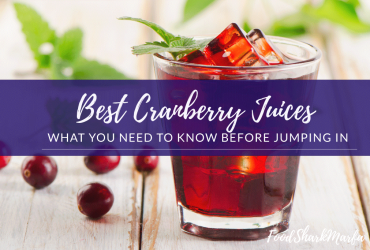
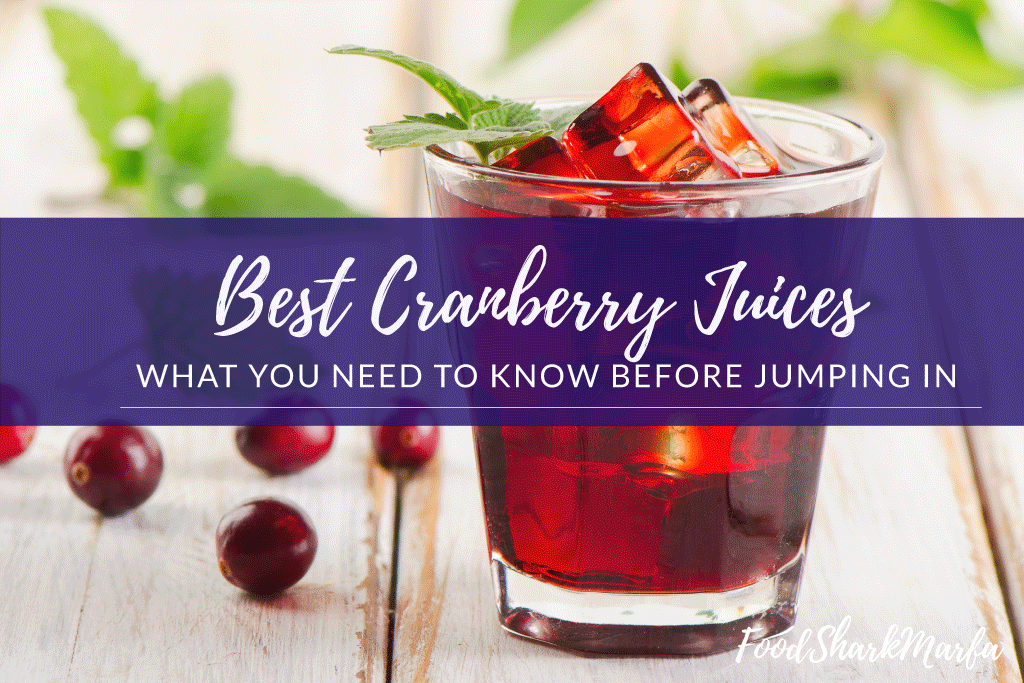

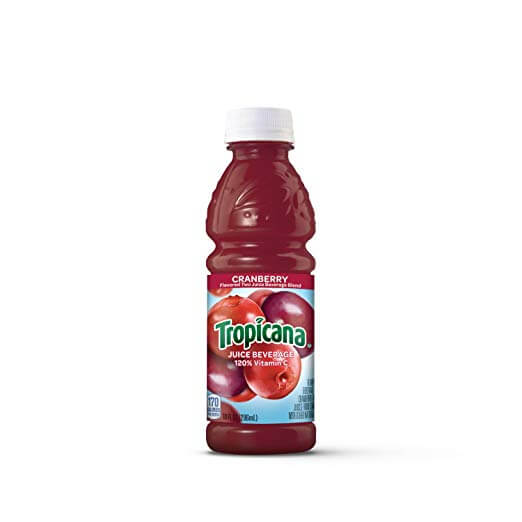
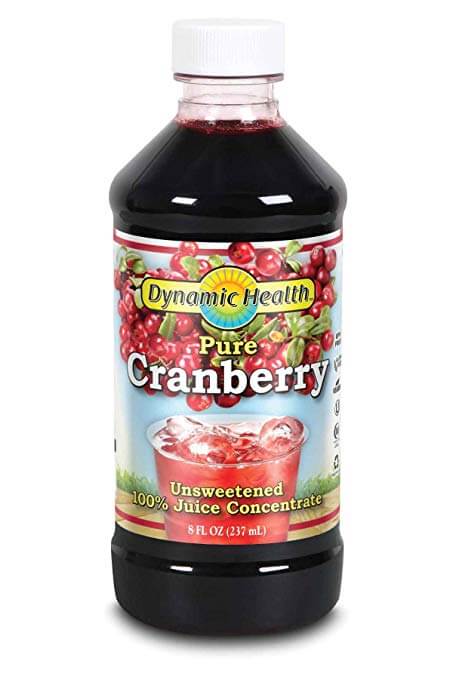

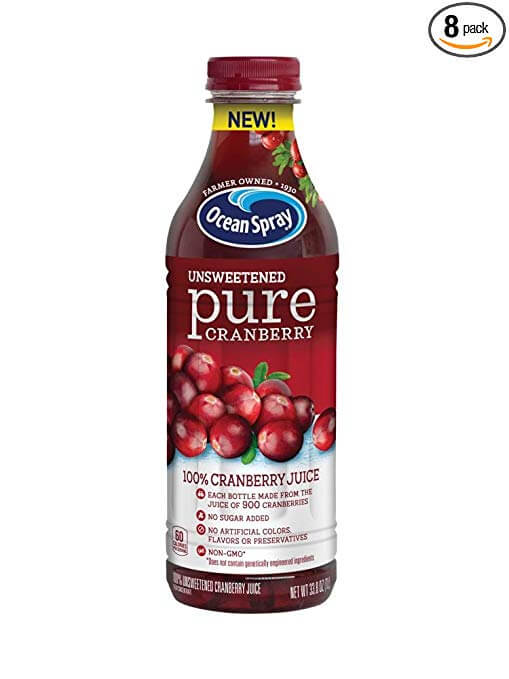
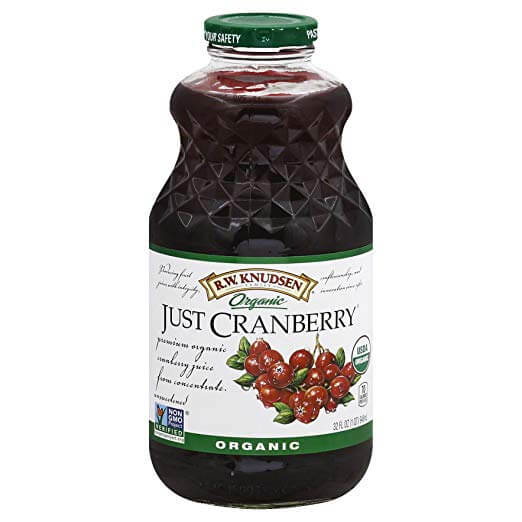
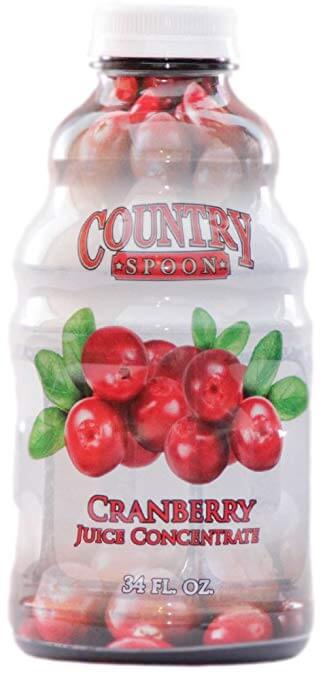
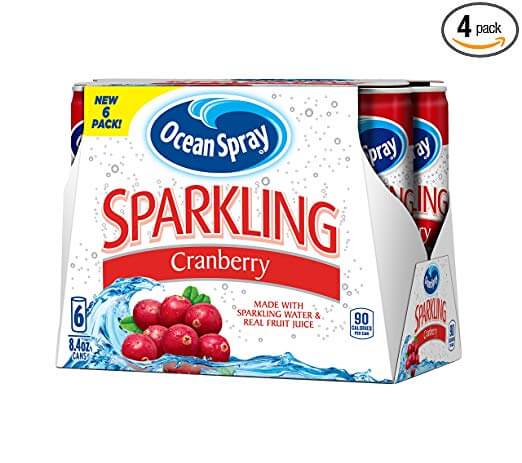

I have consumed cranberry juice as an alternative to soda, and other popular beverages and if nothing else it is clearly a better option even if it is of questionable benefits to your health.